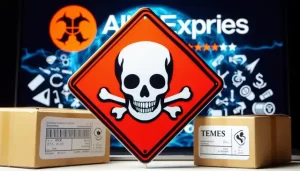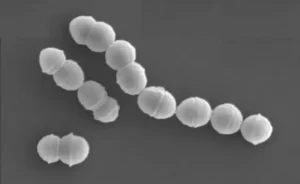AstraZeneca’s COVID-19 vaccine successfully tested in Phase 3 in US
- Child Products from Aliexpess and Temu Contain Carcinogens 3026x Over Limit
- Daiichi Sankyo/AstraZeneca’s Enhertu Shows Positive Results in Phase III DESTINY-Breast06 Clinical Trial
- Mn007 Molecules Offer Potential for Combating Streptococcus pyogenes Infection
- Popular Indian Spices Banned in Hong Kong Over Carcinogen Concerns
- AstraZeneca Admits for the First Time that its COVID Vaccine Has Blood Clot Side Effects
- Gut Bacteria Enzymes Offer Hope for ABO Universal Blood Transfusions
AstraZeneca’s COVID-19 vaccine successfully tested in Phase 3 in US: 100% effective in preventing serious diseases/hospitalization!
AstraZeneca’s COVID-19 vaccine successfully tested in Phase 3 in US. AstraZeneca announced the interim analysis data of the US Phase III clinical trial (D8110C000011) of the adenovirus vaccine COVID-19 Vaccine AstraZeneca (formerly known as AZD1222) developed by the company and the University of Oxford. The results show that this vaccine is 79% effective in preventing symptomatic COVID-19, 100% effective in preventing severe or severe illness and hospitalization, and 80% effective in people 65 years of age and older. %, the data is statistically significant. In addition, AZD1222 has good reactivity and overall safety.

D8110C00001 is a phase III randomized, double-blind, placebo-controlled multicenter study that evaluated the safety and effectiveness of AZD1222 and placebo in preventing COVID-19 in 32,449 subjects in 88 trial centers in the United States, Peru, and Chile Sexuality and immunogenicity. In this trial, trial participants who are 18 years of age or older, are healthy or have a medically stable chronic disease, and are exposed to the SARS-CoV-2 virus and COVID-19 at an increased risk are randomized at a 2:1 ratio Receive 2 intramuscular injections of AZD1222 (5×10 to the power of 10 virus particles) or placebo (normal saline), with an interval of 4 weeks between the 2 injections.
This mid-term safety and effectiveness analysis is based on the cumulative occurrence of 141 symptomatic COVID-19 cases among 32449 participants. Among the participants in the interim analysis, approximately 79% were white/white, 8% were black/African American, 4% were Native American, 4% were Asian, and 22% were Hispanic. Approximately 20% of the participants were 65 years of age and older, and approximately 60% of participants had common diseases associated with an increased risk of progression to severe COVID-19 (such as diabetes, severe obesity, or heart disease).
The data shows that the effectiveness of the vaccine is consistent across races and ages. It is worth noting that among participants 65 years and older, the vaccine’s effectiveness is 80%. In this trial, the AZD1222 vaccine was well tolerated, and the Independent Data Security Monitoring Board (DSMB) found no safety issues related to the vaccine. DSMB conducted a special review of thrombotic events and cerebral venous sinus thrombosis (CVST) with the assistance of an independent neurologist. DSMB found that among the 21583 participants who received at least one dose of the vaccine, there was no increased risk of thrombosis or events characterized by thrombosis. A dedicated search for CVST did not find any incidents in this trial.
AstraZeneca will continue to analyze the data and is preparing to submit preliminary analysis to the US FDA in the next few weeks for emergency use authorization (EUA). At the same time, the preliminary analysis will be submitted to a peer-reviewed journal for publication.
The US Phase III trial led by AstraZeneca includes 2 immunizations with an interval of 4 weeks. Previous experiments have shown that immunization intervals of up to 12 weeks show greater efficacy, which is also supported by immunogenicity data. This evidence shows that the second immunization with an interval of more than 4 weeks can further improve the efficacy and accelerate the number of people who can get the first immunization.
COVID-19 Vaccine AstraZeneca (formerly known as AZD1222) was co-invented by Oxford University and its spin-off company Vaccitech. It uses a replication-deficient chimpanzee virus vector based on a weakened version of the common cold virus (adenovirus), which causes infection in chimpanzees and contains the genetic material of the spike protein of the SARS-CoV-2 virus. After vaccination, a surface spike protein is produced, which stimulates the immune system to attack the SARS-CoV-2 virus.
It is worth mentioning that the COVID-19 Vaccine AstraZeneca vaccine can be stored, transported and processed under conventional refrigeration conditions (2-8°C/36-46°F) for at least 6 months and used in the existing medical environment. AstraZeneca continues to work with governments, multilateral organizations and partners around the world to ensure widespread and fair access to vaccines during the COVID-19 pandemic, without any profit.
In February of this year, this vaccine was included in the Emergency Use List (EUL) by the World Health Organization (WHO) for active immunization of people 18 years and older (including elderly people over 65) to prevent COVID-19. Up to now, this vaccine has obtained conditional marketing approval or emergency use in more than 70 countries on six continents. With the recent WHO listing of this vaccine in the EUL, this will accelerate access to the vaccine through COVAX facilities in as many as 142 countries.
The WHO authorization of the COVID-19 Vaccine AstraZeneca vaccine produced by AstraZeneca and the COVISHIELD vaccine produced by the Serological Institute of India (SII) (the trade name of the COVID-19 Vaccine AstraZeneca vaccine in India) will enable the world to fight COVID-19. This vaccine was obtained during the epidemic.
EUL allows 2 doses of vaccine every 4-12 weeks. Clinical trials have shown that the program is safe and effective in preventing symptomatic COVID-19. 14 days after the second injection, there were no serious cases or hospitalizations. The WHO Strategic Advisory Group of Immunization Experts (SAGE) recommends that the injection interval be 8-12 weeks. In addition, they also recommend the use of this vaccine in countries where new variants (including South Africa’s B1.351 variant) are prevalent.
AstraZeneca has pledged to provide its COVID-19 vaccine to as many countries as possible during the pandemic without making any profit. In June 2020, the company announced that it had signed a sub-licencing agreement with SII to produce and supply up to 1 billion doses of vaccines to low- and middle-income countries.
AstraZeneca is the first global pharmaceutical company to join COVAX (WHO’s New coronavirus Pneumonia Vaccine Implementation Plan) in June 2020. This global mechanism is working hard to accelerate the development and production of new COVID-19 tools, and to enable all participating countries, regardless of income level, to have fair access to these tools throughout the world.
Now, AstraZeneca and SII will work with COVAX Facility to start supplying vaccines around the world, most of which will be shipped to low- and middle-income countries as soon as possible. In the first half of 2021, COVAX is expected to provide more than 300 million doses of vaccine to 145 countries. These doses will be distributed fairly according to the COVAX distribution framework.
(source:internet, reference only)
Disclaimer of medicaltrend.org



